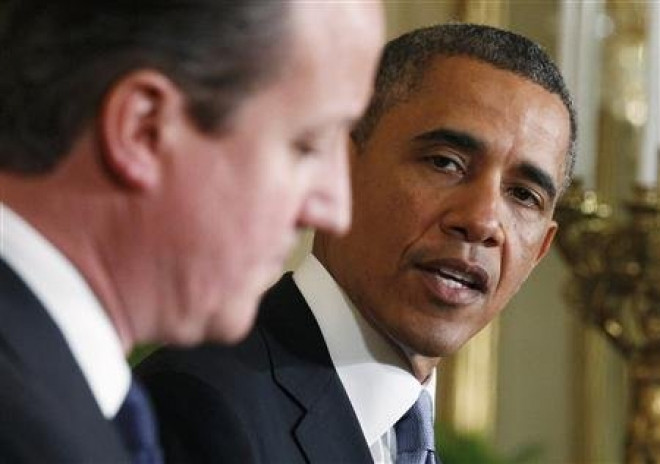The TTIP: How a New Secret 'Trade' Treaty Could Put the World's Biggest Firms Beyond Government Control

The US/EU Transatlantic Trade and Investment Partnership is intended to set global corporate-benefit trade rules, thus bypassing the World Trade Organisation which has hitherto enabled developing countries to resist such regulations.
The TTIP is being negotiated in parallel with the 12-country Transpacific Partnership (TPP) agreement with similar aims and inclusions. The US is party to both.
Rather than "trade", these agreements are really about creating legalised straightjackets to strengthen the power of transnational corporations while correspondingly diminishing the rights of governments to control them.
They are driven by the transnational corporations that will benefit from them, primarily financial service transnationals. The City of London Corporation, representing the large number of transnational financial service firms that have a base in London, has a major influence on EU trade policy, including the TTIP.
The TTIP includes the usual trade-in-goods provision, mainly tariff reductions, though tariffs are already very low on average between the US and the EU. It also encompasses a trade-in-services provision, which strengthens transnational service investor rights, and strengthened Intellectual Property provision.
However, while these are standard components of any free trade deal, the major components of the TTIP are 'regulatory coherence'; the creation of a Regulatory Cooperation Committee to perpetuate this 'coherence'; and something known as 'investor State Dispute Settlement'.
Another important aspect is secrecy. TTIP negotiations and texts remain secret until after the negotiations are completed, even though this deal will directly affect almost a billion people and many more, indirectly, in third world countries.
Regulatory coherence in the TTIP is about "harmonising" the regulations of the US and the EU. As this is a corporate-benefit deal and regulations are described as "trade irritants" in tradespeak, a degrading of regulations down to the least restrictive for transnational corporations is most likely. In many areas, the EU has developed higher standards than the US, and regulation in these areas stands to be negatively affected.
The affected areas include health and safety - which in turn encompasses food safety (GM food, chemically treated food, synthetic food), the EU precautionary principle, EU REACH chemicals safety standards, fracking bans and public services including public broadcasting. The UK National Health Service has already been "harmonised", in a process which actually preceded the official TTIP launch negotiations in June 2013.
The higher financial services regulation of the US will be at risk if financial service regulation is included, something which the EU Trade Commission, acting for London-based transnational financial services, is pursuing. While new regulation is the easiest to "harmonise", the proposal for "Mutual Recognition" for existing regulations is at least as dangerous to standards.
Over-riding national governments
An ongoing "Regulatory Cooperation Council" (RCC) is planned as part of the TTIP. Its role in harmonising all new regulation means it will, simply, override governments.
The council's work work will include input from transnational business groups in early policy-making, with provision for proposed regulation to be scrutinised by corporations of the trading partner. Thus, US corporations would be consulted on any new UK regulation affecting trade, which, with the very broad meaning this agreement attaches to "trade", would be most new regulation.
The inclusion of "investor state dispute settlement" (ISDS) in TTIP will allow transnational corporations to sue governments directly for the loss of all future profits resulting from government action (at any level of government) that affects those future profits. Such disputes will be decided by secretive arbitration panels making decisions solely on "free trade values" without regard for other principles.
Where ISDS is embedded in existing "trade" agreements elsewhere, it is leading to big public money pay-outs to transnational corporations or is having a "chilling" effect on legislative processes, deterring governments from legislating in the public interest for fear of legal action. Legislative proposals with social, environmental or labour rights aims are most likely to invoke ISDS.
There is now, however, growing public awareness and rejection of the ISDS element of this agreement.
Shrouded in secrecy
Because of the secrecy, public knowledge of the contents of the TTIP is coming mostly from leaks. After the European Parliament's rejection of the secretive Anti-Counterfeiting Trade Agreement (ACTA), the Trade Commission is initiating some carefully-choreographed TTIP transparency measures, including a negotiators advisory group, consisting mostly of groups funded by the commission. However none of these measures substantively change the secrecy.
The inbuilt Regulatory Cooperation Council mechanism, by which the role and rights of transnational corporations over governments will continue to strengthen, may allow for a quick sign-up of this massive TTIP deal. The Canada/EU free trade agreement (CETA) was signed "in principle" in mid-October 2013 but is still being negotiated and the text remains secret. This precedent makes an early sign-up of the TTIP, with its more formalised, ongoing RCC, more of a possibility. Trade agreements, once signed up, are effectively permanent.
Two parallel trade phenomena are relevant to the progress of the TTIP: whether the parallel Transpacific Partnership (TPP) deal, already negotiated for five years, is finalised, and whether the proposed US Trade Promotion Authority Bill or "Fast Track" is passed by the US Congress, allowing trade deals to pass through the Congress with minimal debate and no amendments. US Trade deals have only ever passed with Fast Track in place.
Linda Kaucher is a long-term researcher on international trade issues.
There is now a UK StopTTIP campaign, liaising with groups across the EU and the US, and the Occupy London movement is also campaigning against TTIP.
There are fortnightly meetings of the StopTTIP at the UNITE building 128 Theobalds Rd Holborn, and there is further information on the agreement and on action against it on the Occupy website.
© Copyright IBTimes 2025. All rights reserved.





















